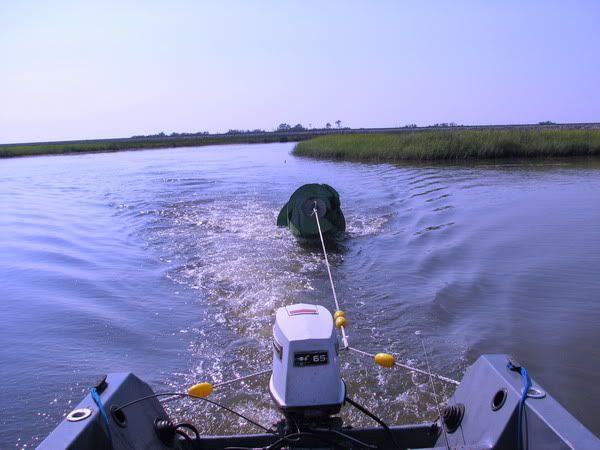Re: Do you stop to help stranded boaters?
The rule about stopping to render aid is very misunderstood. You don't have to render aid just because someone has broken down, run out of gas, etc. The key issue is whether or not the person needing assistance is in danger.
For example, a boat that has run out of fuel in a safe place is an entirely different scenario from one that has run out of fuel in the middle of the ICW, where there is a great deal of barge traffic. In the latter scenario, the possibility of being run over is very real.
So, what does rendering assistance mean? In hypotheticial given above, does it mean that you have to immediately tow the distressed boat? The answer is no. You could warn tugs via VHF, you could fire off a flare if you thought doing so would warn a tug of a boat in front of them, you could use a loud horn to give off the universal danger signal, you could take persons aboard the distressed boat onto your own boat, etc.
The point is that there is no requirement to risk your own well being in order to help someone else. The obvious example here would be that you don't have to risk being run over by a barge and pushboat, that is within a very short distance of doing the same thing to someone else.
As far as liability is concerned, I would say that is a very complicated issue. In most states, there are laws protecting good samaritans from liability claims. The problem is that most of them are limited to issues surrounding medical assistance, first aid, etc. Beyond that narrowly defined area, yes, there is liability exposure and that is true, simply because anyone can sue someone else for just about anything.
But here's the good news, if you tow another boat carefully, and you know what you are doing, chances are that nothing drastic will happen. This is particularly true in protected waters, where the shock forces associated with towing in seas don't occur. Because of this, the possibility of a claim against you is low, because the chances of an attorney taking a case with "no legs" (ie: very little money, if any, likely to be awarded) is slim. This is true merely because very few lawsuits are filed on a fee for service basis - they are nearly always done on contingency. This means the lawyer not only doesn't get paid if he/she loses, but also has to "eat" every expense incurred in working the case.
All of this said, there are a few things that a person can do to limit potential liability. The most simple is to require the towed vessel owner/operator to make the tow line fast to his/her own boat. I will sometimes tell people where
not to fasten it, such on an obviously inadequate cleat, but I don't tell them anything beyond that. On the other end of the spectrum, if you don't know how to tow a boat properly, don't do it. Don't so stupid things either, like trying to tow too fast. When/if you do, you enter the realm of "gross negligence" and that's where both serious injuries and significant liability exposure tend to become an issue.
I tow people on a regular basis and have been doing so for years. I have never once had someone try to claim that I damaged their boat or caused injury to someone. One thing I should include in this statement, however, is that I have refused tows on occassion. If I run into a situation that just isn't safe for some reason, or if the distressed party is drunk, beligerent or just gives me a bad "vibe" in general, I will offer to call an appropriate authority for assistance.
Sometimes, I even tow stuff that can't sue me!






















